There are artists who make music, and there are artists who build worlds. Una Rams belongs firmly in the latter. From his earliest days singing in a Venda church choir to earning a Grammy for his contribution to Black Coffee’s Subconsciously, his journey has been one of resilience, vision, and an unwavering belief in the power of love.
Over the years, I’ve admired how Una has refused to be boxed in by genre, weaving R&B, house, electronic, and hip-hop into a sound that feels at once universal and uniquely his own. To sit with him at this pivotal moment, as he unveils his debut album Meet Me At The Altar, feels like an honour. The project is not just a musical statement but also a love letter—to his wife, his culture, and to the idea that music can heal, preserve, and inspire.
In our conversation, Una opens up about the sacred roots of his artistry, the patience it took to bring this album to life, and the legacy he hopes to leave for both South Africa and the wider world.

You've been releasing music professionally since 2016, starting with your debut single "Nobody". Having stepped into the scene as a teenager, what was your very first contact with music? Who or what initially drew you in—and at what point did you realize this was more than a passion, but a career you wanted to chase?
My first contact with music was through the church—it's a place where I got to understand how music moves people. Seeing people burst into tears because something was just resonating within them meant there was this feeling, and it's a feeling I still chase to this day when I create. I remember being too young and too short to join the choir at church, but I got a Coca-Cola crate, stood on it, and sang with the ladies because my voice hadn't broken yet. That's how much I loved music itself.
With my older brothers in the house writing their own songs and recording on cassettes, it brought music so much closer to me and became something I could see as a form of expression. I didn't just have to hear songs from outside; I could make songs for myself. We tried to start a boy band, which allowed my imagination to soar. When we got a computer, my older brother got a demo version of EJ software, and I'd make beats on there. You just had to make the full thing and export because you couldn't save it, but that honed my skills as a producer.
After a couple of years making my own songs, I got to meet C-Tea, and he really saw something in me. He became the 40 to my Drake—this producer very much focused on building and developing my sound. He encouraged me to experiment on new tracks, and that opened my world up tremendously. I really found my voice in the time we worked together. I remember doing chores on Saturday mornings, imagining that the leaves in the garden were fans' hands reaching out while I performed. That vision for a career had been there all along.
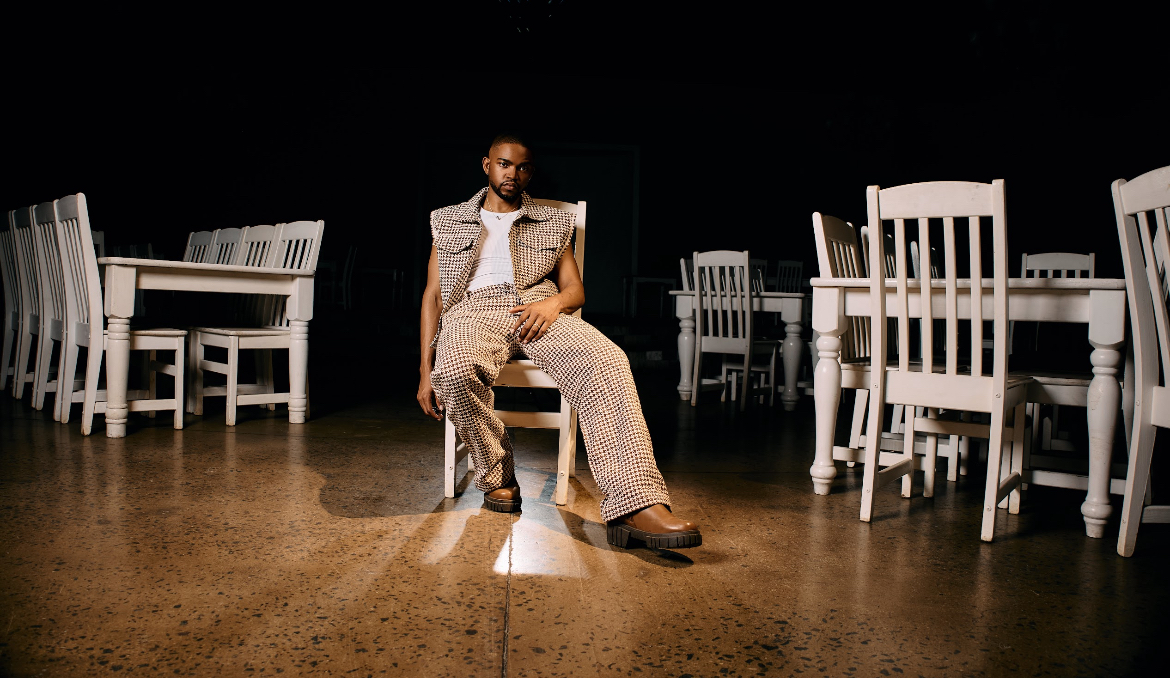
Your artistry doesn't just live in your vocals and songwriting—you're also a strong producer. In fact, Your contribution to "Flava" on Black Coffee's Album "Subconsciously" earned you a Grammy. How did that recognition feel in the moment, and how has it shaped the trajectory of your career since?
It was exciting and scary at the same time. It meant my wildest dreams had come true, but also came with a lot of imposter syndrome. It didn't truly feel like it was mine, and it was difficult for me to accept in the first couple of months. We did our vetting, and I eventually got a certificate that solidified the fact that I was actually a Grammy winner. That became super validating—it let me know that my ideas are great ones and that I can play on the global stage, not just think small.
It was also cool for someone in Coffee's position to see talent and want to take me along for the ride. Seeing a dream like that become realized firsthand made me have so much more belief in the fact that I could achieve my own. And even with this album, that's what I'm gunning for—I want my own Grammy, I want that trophy.

Across your catalogue, you've ventured into R&B, electronic, house, and hip-hop—both on your own projects and through collaborations most especially "Go Deeper" with Idris Elba. How do you maintain that level of versatility without losing your core identity as an artist? And how did the collaboration with him come about?
I don't really believe in genres; I think that's a concept we've artificially manufactured to organize music, but music is just music. I have such a unique taste, and this comes through when I create. I'm not trying to think about what genre I fit and I don't want to be boxed in; I just want to make what my heart wants to in that time, and that gives me so much freedom to truly express myself. The versatility comes from understanding that every collaboration teaches you new dialects while staying
rooted in who you are. C-Tea became the 40 to my Drake... he really taught me to trust my ideas and explore sonic landscapes I'd never dared enter alone. His Ghana bounce was like a musical accent that immediately tells you this person grew up on different influences. He finds unique pockets in his production and timing that South African producers just don't utilize as much. His bounce feels tropical, authentically Afrobeat. That timing, layering, and music theory couldn't have been bred where I'm from. When his Ghana bounce meets my Venda roots, the fusion just sounds like what Africa is: one beautiful, diverse continent sharing the same heartbeat.
The Idris Elba collaboration was divine timing at its finest. I remember saying a prayer asking God for a sign because I was at a point in my career where I needed it—I wanted to know that I was still on the right path and to just get some fuel to keep going. Shortly after saying that prayer, one day I'm working and I just have the urge to check my DMs, which I hardly do, and there it is... a DM from Idris. This idea we had recorded by chance a while back was what he was praising in the DM, and he was super excited about releasing it. It turns out his team had actively been looking for someone to collaborate with and I'd like to thank Aero Manyelo for connecting us. When my name was mentioned, he felt that was the right fit.
It was cool getting on that track and speaking in my mother tongue. I say "Hu kho difha," which means "it's fun," and he heard "Go deeper," so that became a funny situation. But just to be able to fully be myself on such a collaboration added to that validation. It showed me that we're living in a time where the world's so hungry for more diversity. We all want to experience new things, and my culture happens to be that because there hasn't been a lot of interface with it.

I want to say a huge congratulations on your marriage, and I'm very curious how stepping into this new chapter of life changed your perspective as a person and as an artist?
First of all, thank you. It's one of the best things I've ever done. It's funny because I used to think that getting married and eventually having kids meant sacrifice to the point where you don't really get to pursue your dreams. So I was averse to it as a younger person. But having stepped into it, it's done the opposite.
It's put a battery in my back. I'm so blessed and fortunate to be married to a partner that's super supportive and super smart too. She's reminding me of the giant within me and does a great job at letting me be who I am and not only that but amplifying who I am. I feel now more than ever that I have to accomplish what I set out to and achieve my goals and dreams because there are little ones who are looking up to me. Having had a collection of songs exist over the years and finally getting to a point where Matt, my brother and manager, says, "I think we're ready for an album," putting this together was just so special because I then found songs from 2017 or 2019 speaking directly to the time I was living right now. The love I once dreamed of was my reality today, and it was just so beautiful as an artist not just to be able to write a love letter but to dedicate a whole album to my wife.

Your upcoming album “Meet Me At The Altar” is an R&B project and, more personally, a love letter to your wife. Beyond your own story, what do you hope listeners will take away from this album?
I want this to be a celebration of love in the truest sense. I want this to also be a celebration of culture. Universally, we all feel this feeling, but I also want to teach what this means in the South African context or from that perspective. The most audacious act on this album is its opening: transforming "Amazulu," a traditional funeral song, into a celebration of love. It captures the album's DNA, which is turning pain into beauty, honoring the past while creating new meaning. I remember being at a family funeral while in university, a tent pitched outside my grandparents' yard, and between one of the speeches, someone started singing this song. In that moment, it felt like pure healing. For the duration of our singing, my mind completely left the pain of loss and I could just exist in stillness and peace. Repurposing this song felt risky. I didn't know how it would be received, but I grew to accept that what they think about it is none of my business. It might feel taboo to some, but it might also heal someone else out there.
I remember trying to get another artist onboard, and after explaining the concept, they were confused why we were trying this in the first place. They felt it was wrong. But I trusted the vision. For the video, we filmed at a nature reserve with members of an Anglican church as our cast, and they were incredible to work with. They embraced the project with the same excitement we had. I've spoken about this album becoming a sonic museum because we're actively preserving culture for future generations. I've always said that I make soundtracks to life and soundtracks to love in particular. I want people to imagine their lives as these rom-coms, and when you eventually achieve your crush or finally get to marry them, these are the songs that play for people to make memories and moments to.

This album has been seven years in the making. Was the delay about striving for perfection, or were there moments when you simply weren't in the right frame of mind to release it?
I'll be honest to say that I wasn't consciously working on an album most of the time we worked on the songs that are part of this. In that time, I was just freely creating—some of the songs I had initially intended on having as part of a mixtape called "Crush," but I guess God had other plans. I didn't see the point to albums because it feels like our generation is just so fast-paced. In a world where we're quick to scroll and just snapshot captions, I wanted to write a whole essay, so it definitely took time and I definitely did grow through the experience.
A song like "Say The Word" comes to mind because I struggled to write that for a while, and it's only after I got married that I found the words I needed to say. It was so precious opening the vault up to listen back to some of these songs—besides the slight production tweaks, we had really beautiful ideas that had been waiting for their moment. Some songs literally refused to be forgotten, proving my wine theory. "Never Knew" has been one of our toughest to complete—everything that could go wrong, did.
We'd been working with it since 2017, and I'd perform it often at shows, but getting it album-ready became a mission. Stems kept disappearing, original project files got corrupted, and even when we sent it to C-Tea, the first bounce didn't hit the mark. We went back and forth multiple times. Since this was a project from years ago, we were lucky to retrieve any stems at all. We used stemroller, an AI tool that extracts stems from song files, before C-Tea managed to find some original files. The stemroller audio wasn't crystal clear, but we could extract what we needed. Funny enough, I think some of those AI-extracted elements made it onto the final track. But then the guitars started distorting, and we had to bring in Andziso to re-record them completely. At one point, it felt like the whole thing might fall apart. But the most precious records require that kind of patience.

One of my favorite songs on the project is "Priceless Possession." The strings and storytelling make it stand out in a powerful way. Could you walk me through how that record came to life? And, on the flip side, which track did you have the most fun creating?
I heard this song in a dream in 2019. There was a group of people arranged in a circle, singing what became this melody. I woke up because there was some commotion outside, but that melody had already embedded itself in my soul. Both melody and lyrics came through the dream, I had to polish the words after waking, but the foundation was all there. Later that day I managed to go to the studio with C-Tea and my older brother Tondi. I was still sick with flu, so my voice wasn't clear enough, but we managed to come up with that demo. The initial demo took about a day to record, then the song lived in the vault for years.
Seven years later, re-recording brought its own anxiety. I usually keep original takes because I know how hard it is to recapture that initial approach and feeling. Since I'd been sick during the original C-Tea session, I knew this was my chance to get it right. Instead of worrying, I chose to enjoy the process. I knew every lyric by heart, so I could sing it like a live performance. Looking back, I don't know what business I had writing lyrics this profound when I was barely out of my teens—"there's nobody in the world that could give me what we have, there's no money in the world that could buy me what we have." That level of wisdom surprises me, but it shows there was already this deep understanding of love carried within me. Now that I have a child with my wife, those words hit completely different. No one else could give me this love, this family. Only her.
The song that was probably my favorite to make on the album is "I Do," which features J'Something. We were at the camp and we were meant to be working on "Hayani," but it was a very frustrating process. We decided to pivot. There was a "no new song" rule in that camp because the focus was to finish existing songs, but that decision to pivot literally spawned a whole new monster of a track. What followed was pure creative magic. I knew Zadok, Stacy, and Oriah individually but had never seen them work together. When they arrived that day, their communication and workflow immediately screamed chemistry. Oriah started laying down the beat and drum pattern while Zadok simultaneously crafted guitar riffs and I cooked up lyrics. We worked in perfect parallel, bringing our individual pieces together and BOOM! We had a song. Fifteen minutes. That's all it took when you have the right people in the right room at the right time. Then the real magic happened—I gathered everyone in the house to sing the hook together. J Smash, Matt, Raven, Denzel, myself. The whole moment was funny, fun, and beautifully communal. There was genuine shock and excitement that something feeling so integral to the album could emerge from such a relaxed approach. Mid-session, Stacy pulled me aside with an idea: "How about this?" He started singing what became the "Wena" section. Initially, I didn't want the interruption. I was still figuring out my own writing. But I took a breath, calmed down, and let him share his vision. Turns out it was exactly what the song needed! Pure fire.
I have to give props to my wife who suggested that we reach out to J'Something for a collaboration. It was a bit surreal for me and a dream come true... a voice I've heard since my teens when I was starting out in music. Sometimes the best thing you can do is redirect focus completely and let the music win.
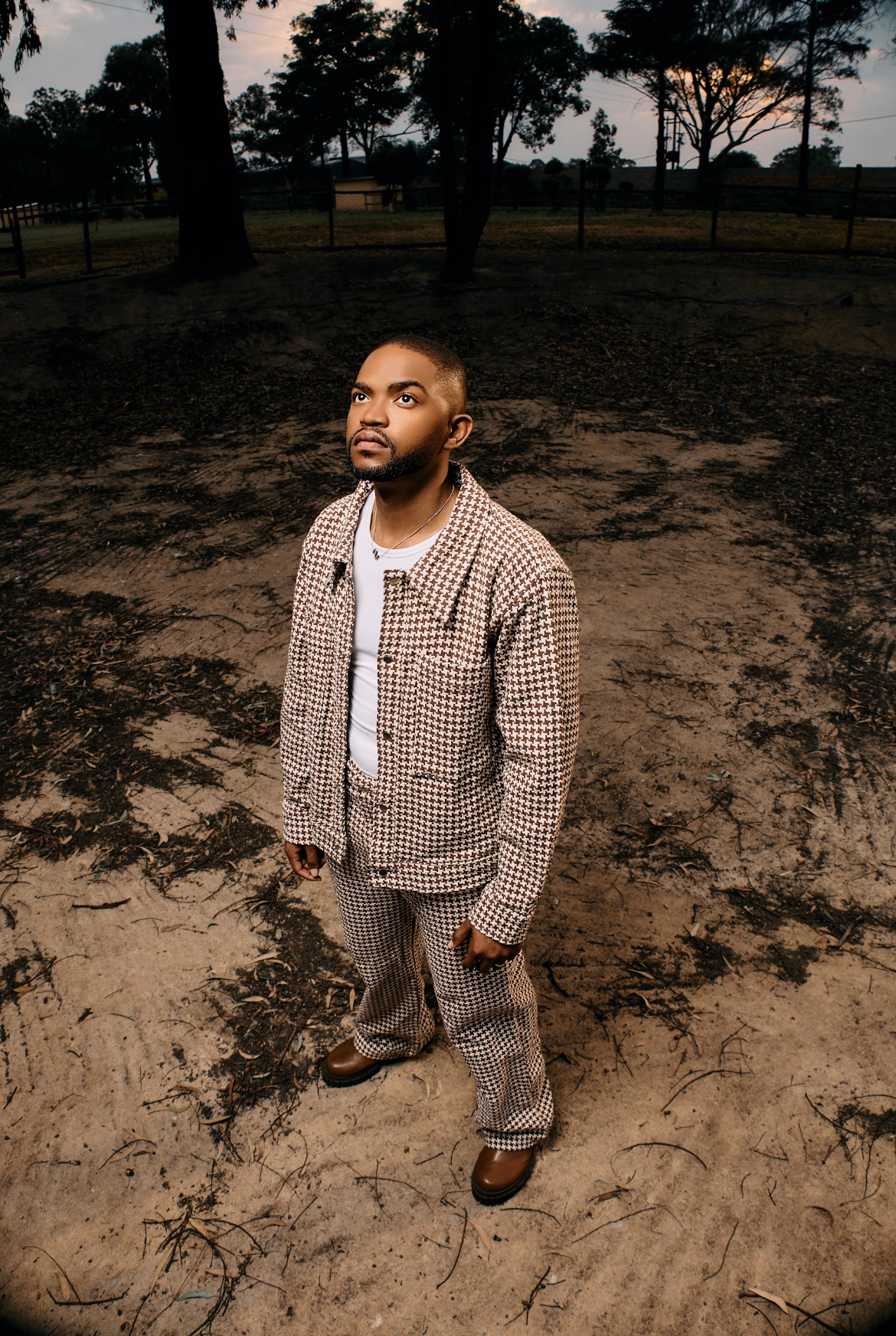
Looking back to 2018, before Meet Me At The Altar began to take shape—and when you were still single—what would you say has been your biggest growth, both personally and musically, between then and now?
I'm definitely less afraid, I'm more confident in who I am and confident in what I can do. I now have a deeper understanding of seasons, and this has come from my walk in life and conversations with my wife, where you're aware of the fact that even mango trees don't bear fruit all year round. They have their time. I have this deep understanding of the fact that I don't have to do everything alone. It does take community. So I'm able to put ego to the side and let ideas win if they benefit what we're focused and working on. That's why I can stand to the side and have my older brother Tondi do a whole song on my debut album, because he could say and sing it in a way that I couldn't.
The most beautiful collaborations have come from this surrender. Working with Amanda Black on "takala," she's Xhosa, I'm Venda, yet she was willing to twist her tongue around my language for the sake of our song. You could hear her accent. She clearly wasn't native to the language, but she was nailing the pronunciation. That effort alone spoke volumes about her commitment to the art. She embraced the collaborative energy, dancing, singing, vibing with all of us like she'd been doing it forever. When I wrote "ndi a mufuna," I worked with Muneyi, who grew up with his grandmother and knows deeper, richer Venda than I do. His writing is phenomenal and watching him sit and absorb the music before writing was mesmerizing. He has this incredible process where it looks like he's leaving notes in the air, then guiding his hand to locate them again. The vocal gymnastics he pulled off, the dynamics he brought... I could never have achieved that level. This song wouldn't be what it is today without his voice. I'm at a place where my passion for seeing a dream achieved goes beyond just myself. I want to see the same not just for my wife and my own family, but for the many kids that grew up in an environment similar to mine. Knowing that representation matters means that they have to see it from somewhere. I'm so proud to wave the Venda flag high and to showcase my culture and my people to the world so they can see just how beautiful Venda and South Africa ultimately are.
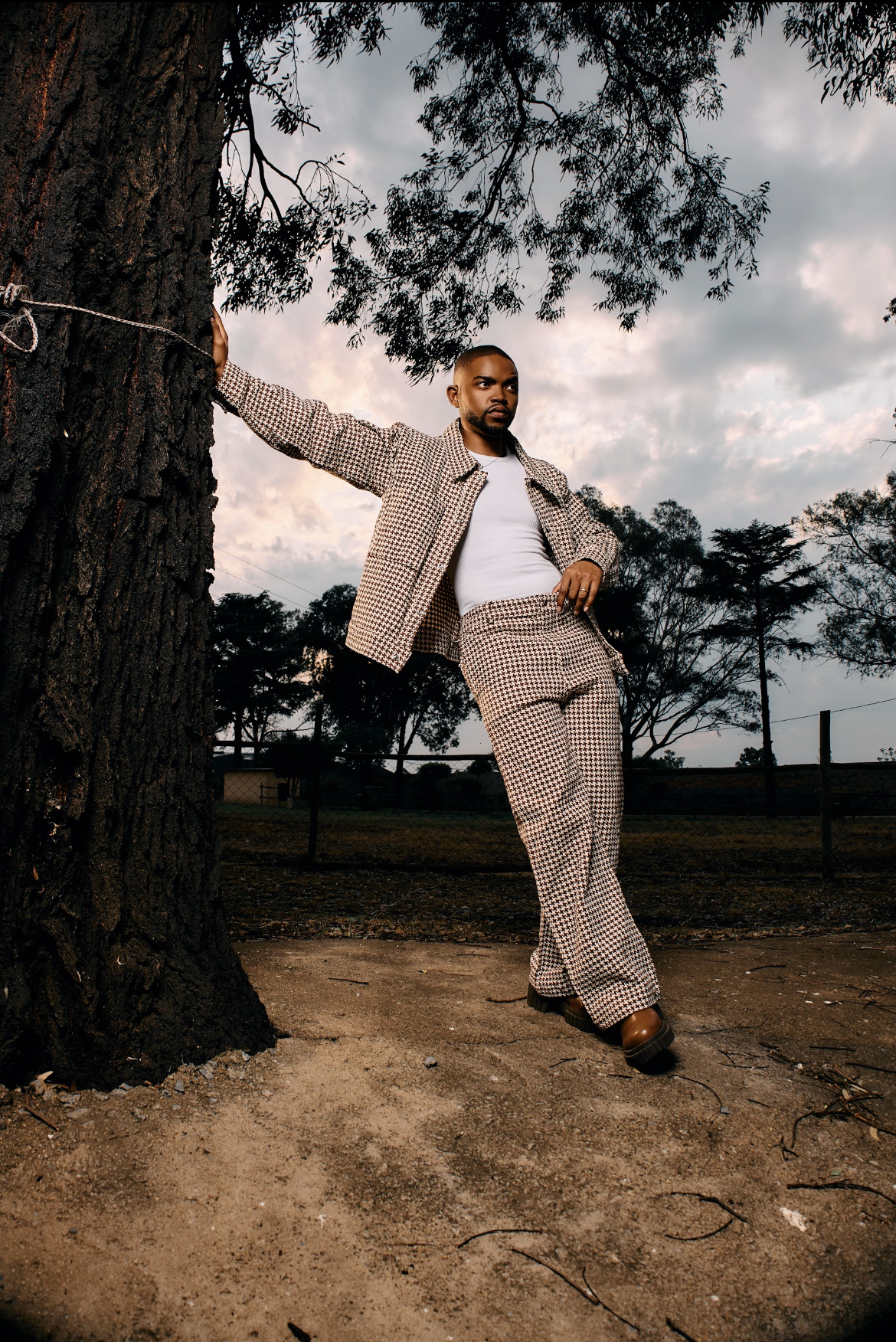
With this album finally out in the world, what do you feel you're contributing to the culture that wasn't there before? And when you think about the long-term, what kind of imprint do you hope to leave on the scene?
To be honest, I'm not spending too much time thinking about that. I'm much rather creating a world I want to see exist. I'm hoping that people can find their favorite songs in there, songs they can really celebrate these moments with, because I'm a big fan of love and I want people to fall in love, live life slowly, and really enjoy these moments. I feel that when love leads, we can have a better world. And as naive as it may sound, I do believe that music is an ingredient in the recipe for changing the world. I want for artists around the world in these fringe villages to know that their voice matters and that they don't have to become anything else but themselves in order to be successful. But beyond the music, I have concrete plans for cultural preservation. I'll continue championing Venda people through direct action. Investing in museums, documentaries, ensuring our own history gets taught properly in schools. Music and its accompanying visuals will play crucial roles in this cultural preservation mission. I want to create a foundation where young Venda artists can access resources to tell their stories authentically. The goal is to make the Rambani name synonymous not just with great music, but with cultural stewardship and community investment.
.svg)


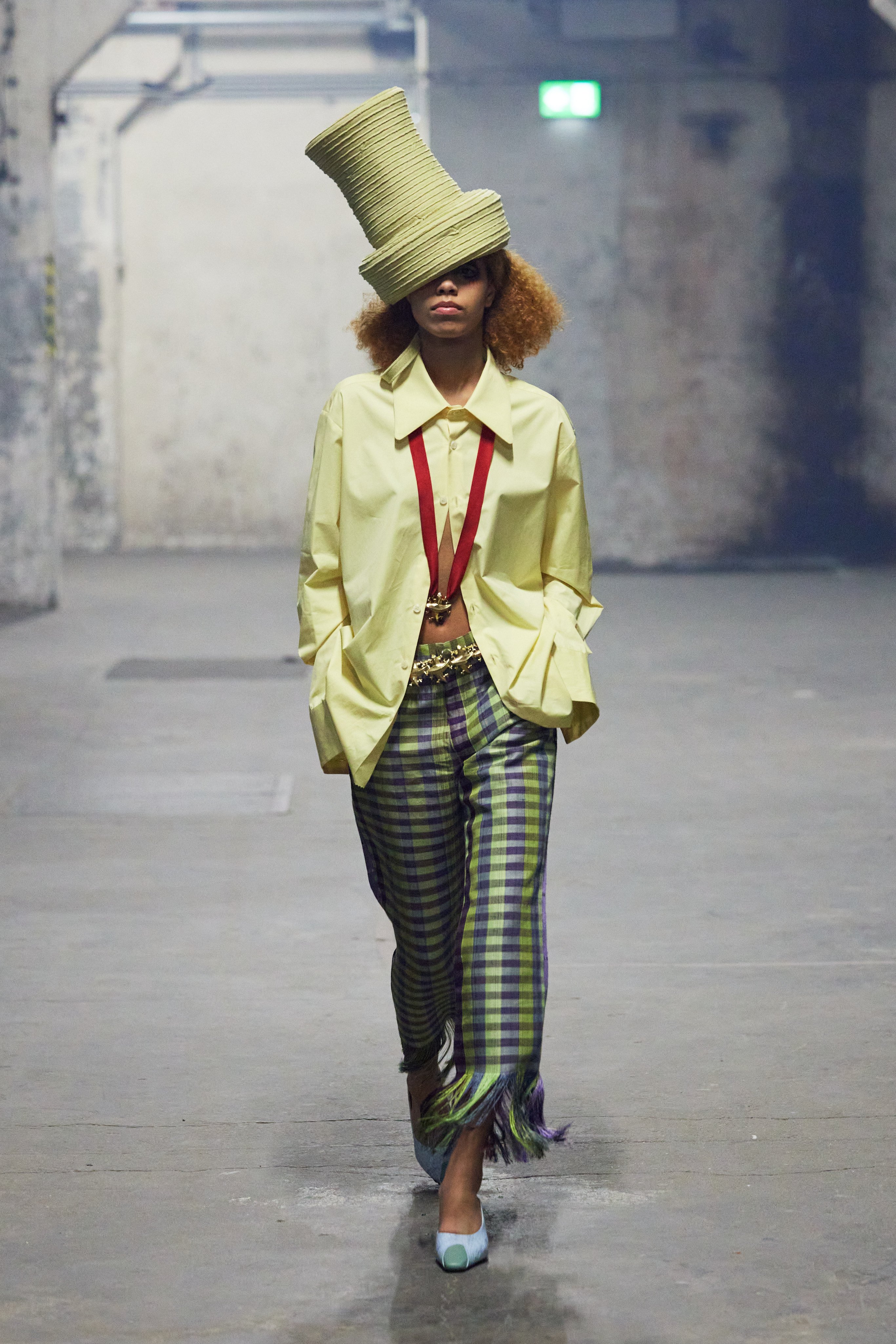
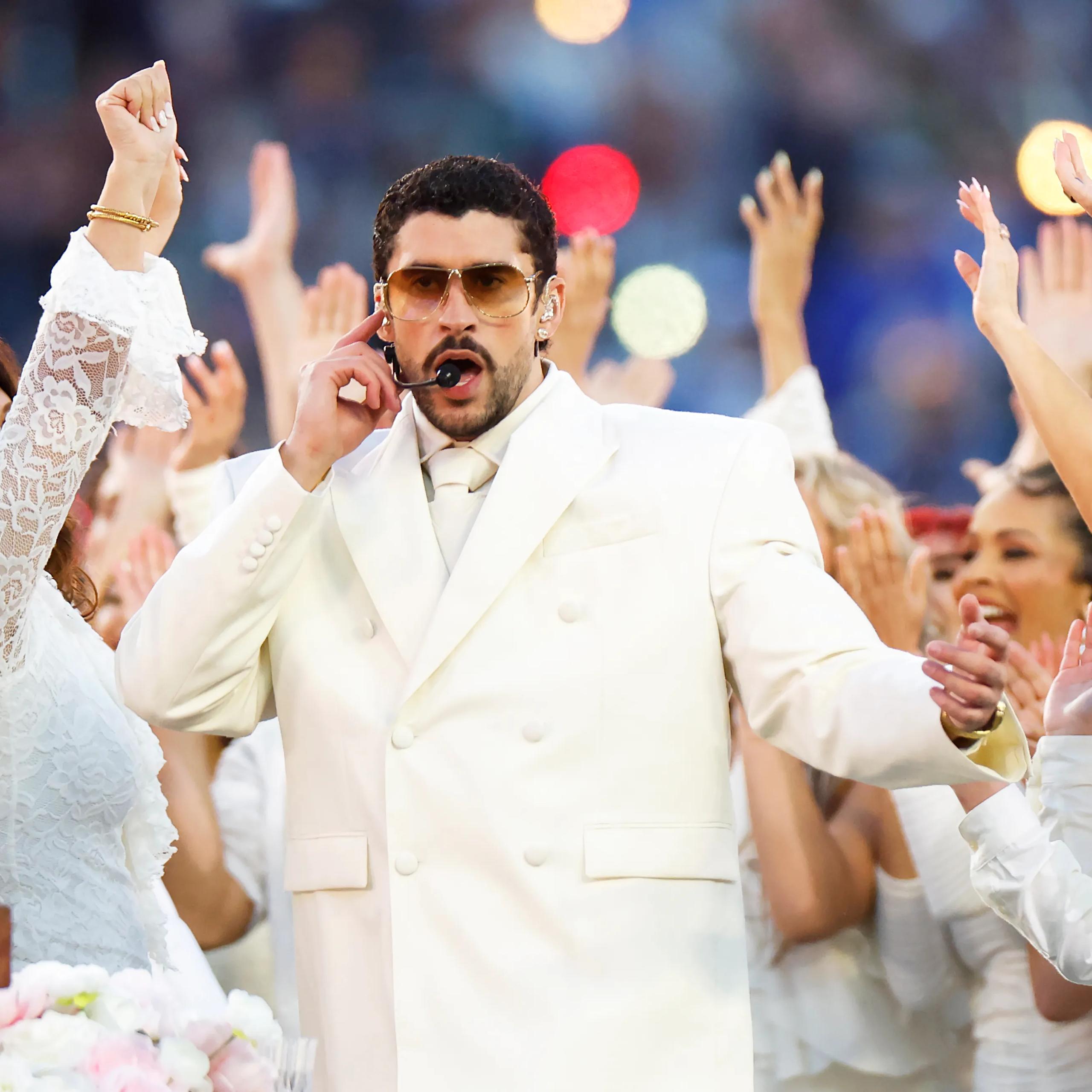



.png)

